
ECE Seminar Series
The seminar series explores cutting-edge research in all areas of ECE, facing the grand challenges of our time. It focuses on a wide range of topics in ECE, including microelectronics, photonics and unconventional computing (both quantum and non-quantum) in the post-Moore era, and the theory and applications of machine learning and AI. The series will feature some of the most promising and established researchers in the field, and provide a unique opportunity for participants to learn about the latest developments and engage in discussions with invited experts and ECE graduate students. Additionally, it will promote diversity by featuring a diverse range of speakers and perspectives, ensuring the broad accessibility of the latest ideas and breakthroughs.
Series Committee Members – Faculty: B.S. Manjunath (Chair), Elaheh Ahmadi, Kerem Çamsarı, Haewon Jeong, Tobia Marcucci and Graduate Student Association: Anantajit Subrahmanya
Upcoming Distinguished Lectures at the ECE Seminar Series (2025-2026)
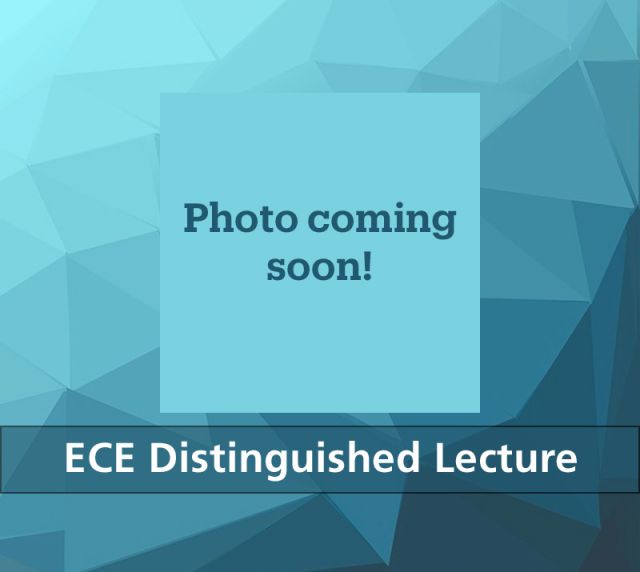
Next Talk Coming Soon!
“TBA”
TBA's Talk – March ?? (Fri) @ 2:00pm | Harold Frank Hall (HFH), Room 4108
TBA's Bio
Past Distinguished Lectures at the ECE Seminar Series (2025-2026)
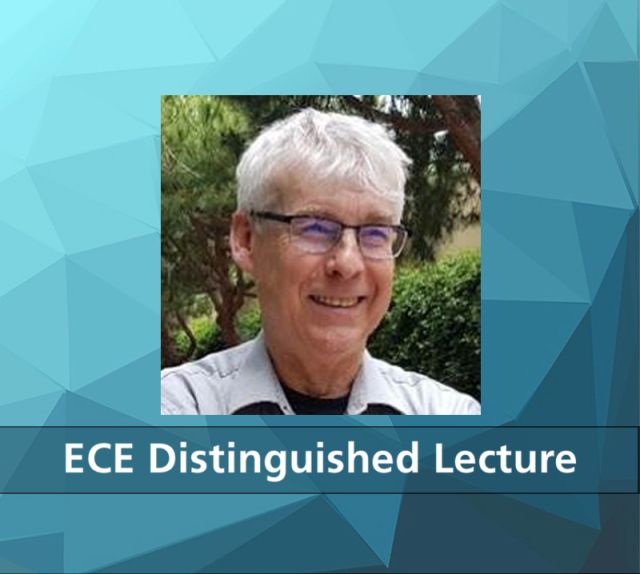
Mark Rodwell, Distinguished Professor, ECE, University of California, Santa Barbara
“100-300 GHz Wireless: transistors, ICs, systems”
Rodwell's Talk – Feb 27 (Fri) @ 2:00pm | Harold Frank Hall (HFH), Room 4108
Mark Rodwell holds the Doluca Family Endowed Chair in Electrical and Computer Engineering at UCSB. His research group develops nm and THz transistors, and high-frequency integrated circuits and systems. Prof. Rodwell received the 2022 University Research Award from the Semiconductor Industry Association (SIA) and the Semiconductor Research Corporation (SRC), the 2010 IEEE Sarnoff Award, the 2012 Marconi Prize Paper Award, the 1997 IEEE Microwave Prize, the 2009 IEEE IPRM Conference Award, and the 1998 European Microwave Conference Microwave Prize.
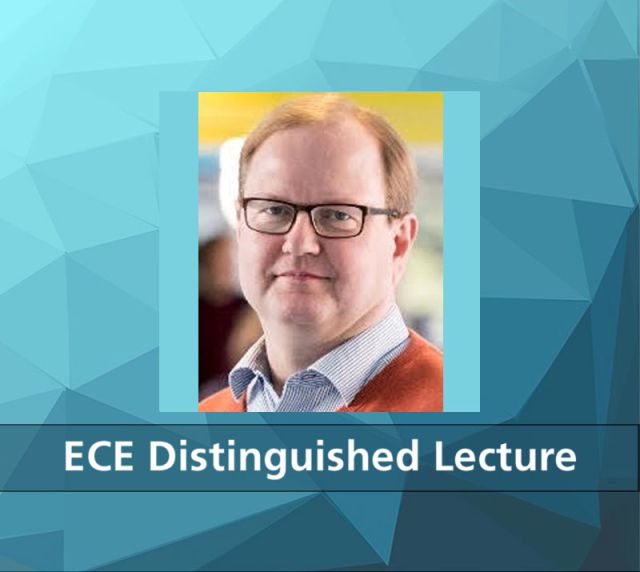
Aarno Pärssinen, Professor, IT and EE, University of Oulu
“6G from Early Research Towards Commercialization”
Pärssinen’s Talk – Feb 13 (Fri) @ 2:00pm | Engineering Science Bldg (ESB), Room 1001
Aarno Pärssinen received a D.Sc. degree from the Helsinki University of Technology, Finland, in 2000. From 2000 to 2014 he was with the Nokia Research Center, Renesas Mobile and Broadcom. Since 2014 he has been with the University of Oulu, Finland, where he is currently a Professor. His research interests include transceiver architectures and RFICs. He has authored and co-authored more than 250 international publications and holds several patents. He was a member of the technical program committee of ISSCC in 2007-2017. He has been a member of the technical program committees of the RFIC Symposium and ESSERC since 2024 (more…)

Jeff Wittich, Chief Product Officer, Ampere
"Silicon to Strategy: Lessons from Building Products, Platforms, and Companies"
Wittich's Talk – Feb 6 (Fri) @ 2:00pm | Engineering Science Bldg (ESB), Room 1001
Jeff Wittich is the chief product officer at Ampere. Prior to joining Ampere, he worked at Intel for 15 years in a variety of positions throughout the company. Most recently, he was responsible for the Cloud Service Provider Platform business, driving global market reach, product customization, and ultimately defining the products and platforms being used across the cloud worldwide. While at Intel, Jeff also led a product development team responsible for 5 generations of Xeon processors. He received an Intel Achievement Award for his work in developing the Custom CPU program. Jeff has an MS in Electrical and Computer Engineering from the University of California, Santa Barbara and a BS in Electrical Engineering from the University of Notre Dame.

Tao Pang, Roboticist, Robotics & AI Institute
"Efficient Planning and Learning for Contact-rich Manipulation Via Structured Exploration"
Pang's Talk – Jan 23 (Fri) @ 2:00 | Engineering Science Bldg (ESB), Room 1001
Tao Pang received his PhD from the Massachusetts Institute of Technology, where his work on global planning for contact-rich manipulation earned an Honorable Mention for the IEEE T-RO King-Sun Fu Memorial Best Paper Award. He is currently a roboticist at RAI. His research interests lie at the intersection of robotics, optimization and machine learning, with a focus on building robots with human-level dexterity.
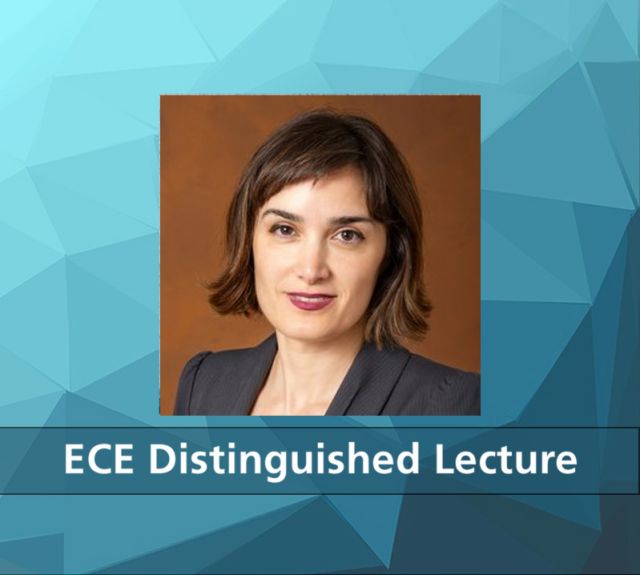
Mina Rais-Zadeh, Group Supervisor, Jet Propulsion Lab
"MEMS and Microsystems for Space Applications"
Rais-Zadeh's Talk – Jan 16 (Fri) @ 2:00 | Harold Frank Hall (HFH), Room 1132 (CS Conf. Rm.)
Dr. Mina Rais-Zadeh is currently serving as a Group Supervisor at the Jet Propulsion Laboratory (JPL) where she directs activities related to advanced micro-instrument development. Prior to joining JPL, she was an Associate Professor in the EECS Dept at the University of Michigan, having earned her B.S. from Sharif University of Technology and her M.S. and Ph.D. from the Georgia Institute of Technology. Her research is centered on the development of robust micro/nano devices for space and harsh environments, focusing on areas such as resonant micromechanical devices, RF MEMS, Gallium Nitride (GaN) MEMS, and advanced micro/nano fabrication process development for wireless communication and sensing applications. Her significant contributions have been recognized with prestigious honors including the IET Fellowship, JPL North Start Award, NSF CAREER Award, the IEEE Electron Device Society Early Career Award, and the NASA Early Career Faculty Award.
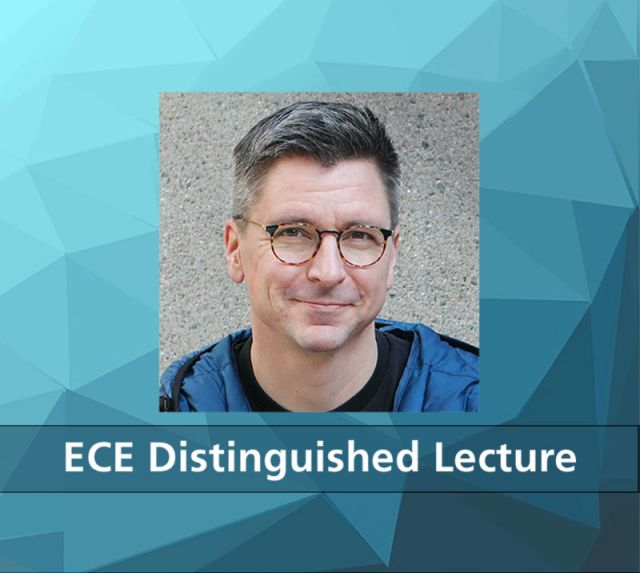
Teemu Roos, Professor, Computer Science, University of Helsinki
"Vector Search: High Throughput and Robust Query Processing and Modern Benchmarks"
Roos' Talk – Dec 8 (Mon) @ 2:00 | Engineering Science Building (ESB), Room 1001
Teemu Roos is a Professor of Computer Science at the University of Helsinki and the Leader of the AI Education program at the Finnish Center for AI (FCAI). Roos is also the lead instructor of the Elements of AI online course that has over 1.9M users and has been rated as the world’s best computer science MOOC. Previously, he has held visiting positions at UC Berkeley, MIT, and Cambridge University. His research interests include statistical machine learning and its applications in astrophysics, neuroscience and epidemiology.
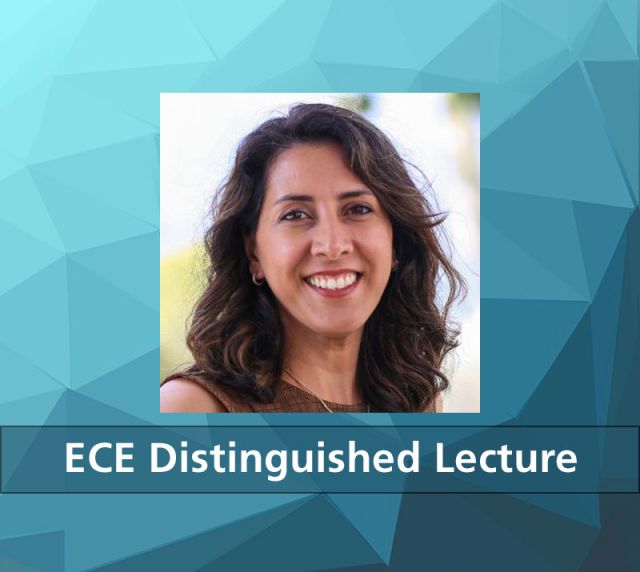
Elaheh Ahmadi, Associate Professor, ECE, University of California, Santa Barbara
"Novel Devices for Emerging Applications through Materials Innovations"
Ahmadi's Talk – Oct 24 (Fri) @ 2:00pm | Engineering Science Building (ESB), Room 1001
Elaheh Ahmadi’s research is focused on design, fabrication and characterization of novel (ultra)wide bandgap materials and devices for high power and high frequency applications as well as quantum applications. Ahmadi joined UCSB as an Associate Professor in 2025. Prior to that, she was an Associate Professor at UCLA (2023-2025), and an Assistant Professor at the University of Michigan (2018-2023). She has received several awards, including the Young Investigator Award in 2020 from both the Office of Naval Research and the Air Force Office of ScientificResearch. In 2021, she received the National Science Foundation CAREER Award and DARPA Young Faculty Award.... (more)
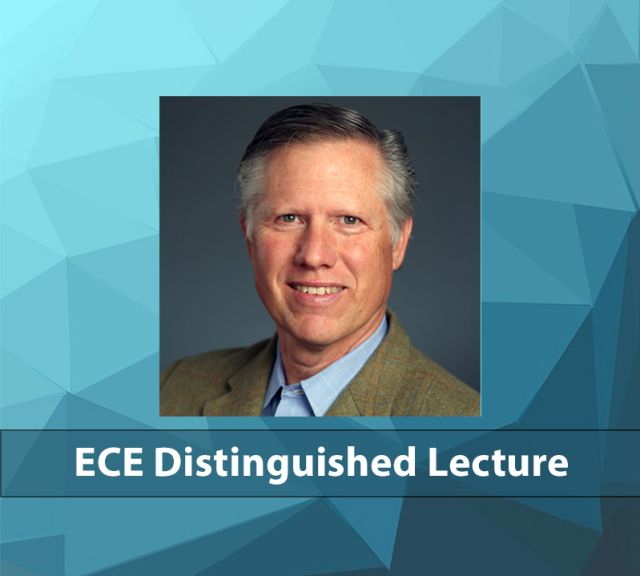
Daniel M. Kuchta, Principal Hardware System Architect, NVIDIA
"Co-Packaged Optical Transceivers for HPC, Data Center, and AI Applications"
Kuchta's Talk – Oct 10 (Fri) @ 2:00 | Engineering Science Building (ESB), Room 1001
Daniel M. Kuchta (IEEE Fellow 2019) is a Principal Hardware System Architect at Nvidia. Previously he was a Research Staff Member in the Communications and Computation Subsystems Department at the IBM Thomas J. Watson Research Center since 1992. He received B.S., M.S., and Ph.D. degrees in Electrical Engineering and Computer Science from the University of California at Berkeley in 1986, 1988, and 1992, respectively, While at IBM Research he worked on high-speed VCSEL characterization, multimode fiber links, and parallel fiber optic link research. (more...)
Past Lectures at the ECE Seminar Series (2025-2026)
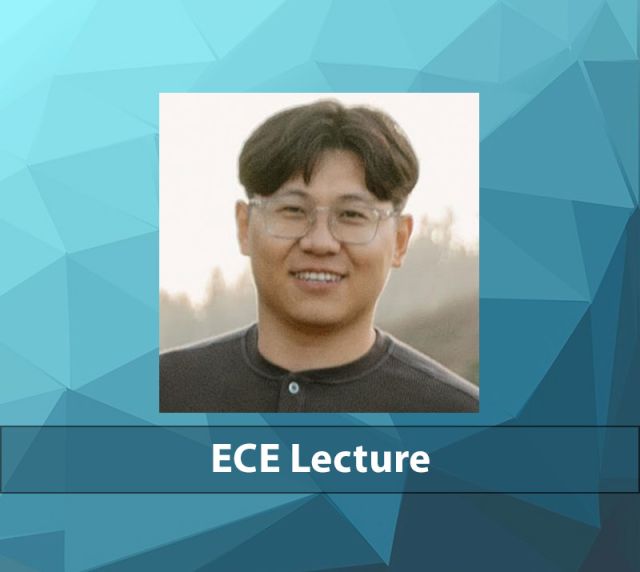
Xin (Eric) Wang, Assistant Professor, Computer Science, UCSB
“Building AI Agents that Reason, Act, and Evolve”
Wang's Talk – Feb 20 (Fri) @ 2:00pm | Henley Hall (HH), Room 1010
Xin (Eric) Wang is an Assistant Professor in the Computer Science Department at UC Santa Barbara and the Head of Research at Simular. He also directs the UCSB Center for Responsible Machine Learning (CRML). His research interests include Natural Language Processing, Computer Vision, and Machine Learning, with an emphasis on Multimodal and Agentic AI. Previously, he was a faculty at UC Santa Cruz and worked at Google Research, Meta FAIR, Microsoft Research, and Adobe Research. (more...)
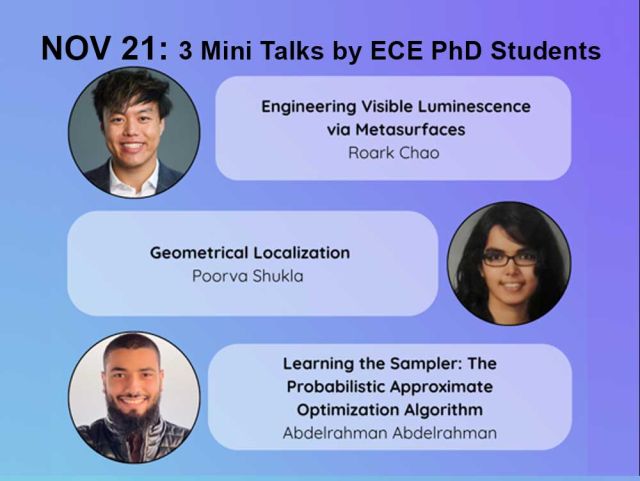
ECE Seminar Series (GSA) – Three Mini Talks by ECE PhD Students
GSA's Talk – Nov 21 (Fri) @ 2:00 | Engineering Science Building (ESB), Room 1001
- "Engineering Visible Luminescence via Metasurfaces," Roark Chao, ECE PhD Student, Schuller Lab
- "Geometrical Localization," Poorva Shukla, PhD Student, Bamieh Lab
- "Learning the Sampler: The Probabilistic Approximate Optimization Algorithm," Abdelrahman S. Abdelrahman, PhD Student, Çamsarı Lab

Tobia Marcucci, Assistant Professor, University of California, Santa Barbara
"A Tutorial on Graphs of Convex Sets: A New Optimization Framework for Robotics and Control"
Marcucci's Talk – Nov 14 (Fri) @ 2:00 | Engineering Science Building (ESB), Room 1001
Tobia Marcucci is an Assistant Professor in the Department of Electrical and Computer Engineering at the University of California, Santa Barbara (UCSB). He is also affiliated with the Department of Mechanical Engineering and the Center for Control, Dynamical Systems, and Computation (CCDC) at UCSB. Before joining UCSB, he was a Postdoctoral Scientist at Amazon Robotics. He received a PhD in Computer Science from the Massachusetts Institute of Technology (MIT), under the supervision of Russ Tedrake and Pablo Parrilo. During his PhD, he also spent one year at Stanford University visiting Stephen Boyd’s group... (more)

Nuutti Tervo, Visiting Professor, UC, Santa Barbara
"Signal Processing Meets RF Hardware: Compensating RF Nonidealities in Future Wireless Systems"
Tervo's Talk – Oct 31 (Fri) @ 2:00 | Engineering Science Building (ESB), Room 1001
Nuutti Tervo received his B.Sc. (Tech.), M.Sc. (Tech.), and D.Sc. (Tech.) degrees from the University of Oulu, Oulu, Finland, in 2014, 2014, and 2022, all with distinctions. He works as an Assistant Professor (tenure track) with the Centre for Wireless Communications—Radio Technologies (CWC-RT) research unit at the University of Oulu. Currently, he is also a visiting researcher and a Fulbright Finland Scholar at the University of California, Santa Barbara, USA, until February 2026. From April 2022 to March 2024, he worked as a postdoctoral researcher at the University of Oulu, leading the RF signal processing research at the RF group. Since September 2023, he has also worked as the coordinator of the Devices and Circuit Technologies research area in the 6G flagship program by the Academy of Finland... (more)
Past ECE Seminar Series Distinguished Lectures & Talks (2023-24)
ECE Distinguished Lectures at the ECE Seminar Series
- Matthew W. Daniels, Project Leader, National Institute of Standards and Technology (NIST) – “Computing Beyond Boolean Logic Using Time, Stochasticity, and Geometry"
- DK Panda, Professor, Computer Science & Engineering, Ohio State University – "Creating Intelligent Cyberinfrastructure for Democratizing AI: Overview of the Activities at the NSF-AI Institute ICICLE"
- Takako Hirokawa, Principal Device Engineer, GlobalFoundries – "Latest Progress and Challenges in 300 mm Monolithic Silicon Photonics Manufacturing"
- Mrinalini Lakshminarayanan, Head of Product Strategy & Innovation, Verizon – “Future of Connected World Technologies"
- Kush Varshney, Distinguished Researcher, IBM Research – “A Carative Approach to AI Governance"
- Shyam Gollakota, Washington Research Foundation Endowed Professor, UW – "Augmenting Human Auditory Perception with AI”
- Richard Mirin, Group Leader, Quantum Nanophotonics, NIST Boulder – “High-efficiency, Superconducting Single-photon Detectors from Ultraviolet to Long-wavelength Infrared”
- Elza Erkip, Institute Professor, ECE, NYU – “Distributed Compression in the Era of Machine Learning”
- Priyadarshini Panda, Assistant Professor, EE, Yale University – ”Rethinking AI Algorithm and Hardware Design with Neuromorphic Computing"
- Jagadeesh Balam, Senior Research Manager & Taejin Park, Senior Research Scientist, NVIDIA – “NVIDIA NeMo Toolkit for Conversational AI: An Open Source Framework for Advanced Speech Models"
ECE Seminar Series Talks
Past ECE Seminar Series Distinguished Lectures & Talks (2022-23)
ECE Distinguished Lectures at the ECE Seminar Series
- Melanie Weber, Ass't Prof. of Applied Math & Science, Harvard – "Exploiting Geometric Structure in Machine Learning and Optimization,"
- Adam Smith, Professor, Computer Science, Boston University – "Privacy in Machine Learning and Statistical Inference"
- John Sipe, Professor, Physics, U of Toronto – "Thinking About Squeezed States"
- Sayeef Salahuddin, TSMC Distinguished Prof., UC Berkeley – "CMOS+X: Integrated Ferroelectric Devices for Energy Efficient Electronics"
- Urbashi Mitra, Prof., ECE, USC – "How Designing an Application-specific Algorithm Led to a New Form of Reinforcement Learning"
- John Martinis, Prof. Physics, UCSB – My Trek from Fundamental to Industrial Research: Quantum Systems Engineering"
- Justin Solomon, Assoc. Prof., EECS, MIT – "Volumetric Methods for Modeling, Deformation, and Correspondence"
- Dr. Masoud Mohseni, Google Quantum AI – "Quantum-inspired Nonlocal Monte Carlo for Optimization and Sampling”